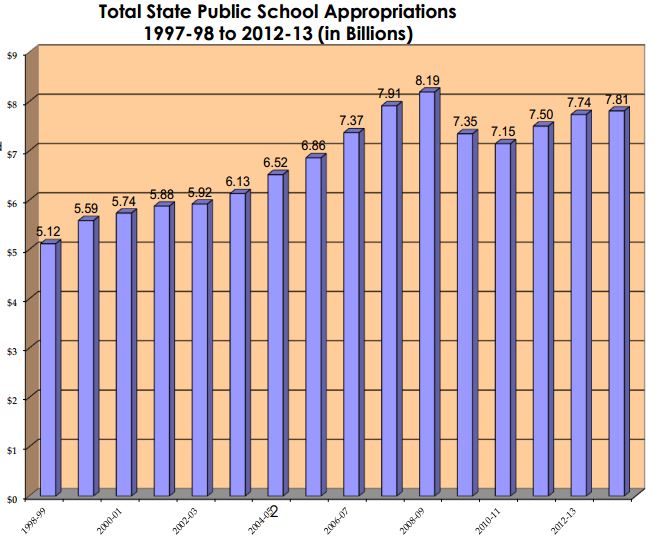The number of public school students in North Carolina has increased by more than 48,000 since 2007-08, yet the state funding level for public schools has decreased by $100 million. That’s according to last year’s report from the North Carolina Department of Public Instruction.
On Tuesday night at North Carolina Central University, a panel of superintendents from four area school districts discussed how changes in the state education budget impact their districts.
Tom Forcella, superintendent of Chapel Hill-Carrboro City Schools, said the recent economic recession impacted state education budgets across the country. But, he said, other states have renewed their support for public education.
“There doesn’t seem to be the will on the part of our state leaders to really turn this around,” said Forcella. “I think that if we had that will and that desire, and the people of North Carolina really voiced their concerns, I think we can turn this around.”
In 2012-13, the sources of funding for North Carolina public schools were:
State 62%
Local 26%
Federal 12%
“Orange County provides the highest per pupil appropriations in the state of North Carolina,” said Del Burns, Orange County interim superintendent.
A study from the nonpartisan Public School Forum of North Carolina shows that Orange County leads spending in the state with $4,100 per pupil in 2012-13.
Local chapters of the League of Women Voters sponsored the event, and Wynetta Lee, Dean of the School of Education at NCCU, moderated the discussion with the four superintendents:
Del Burns, Orange County interim superintendent;
Tom Forcella, Chapel Hill-Carrboro superintendent;
Derrick Jordan, Chatham superintendent and
Bert L’Homme, Durham superintendent.
In addition to discussing the state’s role in funding public education, the panel discussed technology in schools and how charter schools are impacting public school funding.
Charter schools are exempt from regulations traditional public schools must follow; charters don’t have to provide transportation or meals for students. Critics say charter schools, which receive public funds, draw resources away from traditional public schools.
“Folks leave us for a reason,” said Burns. “Sometimes they’re running to something. Sometimes they’re running from something. And I don’t believe charter schools will go away. The question of Orange County Schools now is, ‘What would it take for Orange County Schools to be the first choice for families in Orange County?’”







Comments on Chapelboro are moderated according to our Community Guidelines